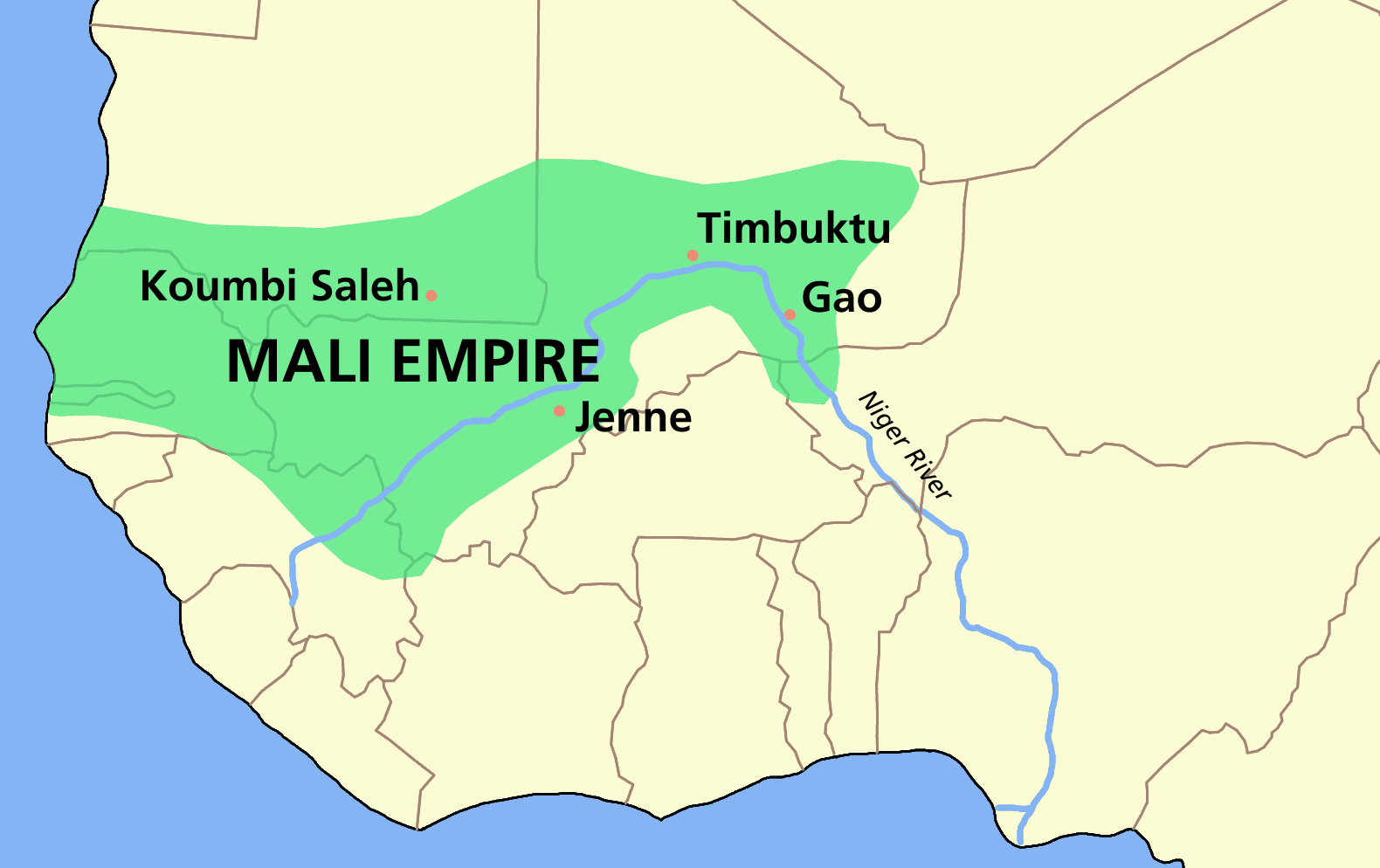
Sunday, January 24, 2010
Law Control of Mali as described by Ibn Battuta
-Ibn Battuta
A Primary Source about Mali
"[The sultan] has a lofty pavilion, of which the door is inside his house, where he sits for most of the time. . . . There came forth from the gate of the palace about 300 slaves, some carrying in their hands bows and others having in their hands short lances and shields. . . Then two saddled and bridled horses are brought, with two rams which, they say, are effective against the evil eye. . . . Dugha, the interpreter, stands at the gate of the council-place wearing fine garments of silk brocade and other materials, and on his head a turban with fringes which they have a novel way of winding. . . . The troops, governors, young men, slaves, the Masufa, and others sit outside the council-place in a broad street where there are trees. . . . Inside the council-place beneath the arches a man is standing. Anyone who wishes to address the sultan addresses Dugha and Dugha addresses that man standing and that man standing addresses the sultan. If one of them addresses the sultan and the latter [the Sultan] replies he uncovers the clothes from his back and sprinkles dust on his head and back, like one washing himself with water. I used to marvel how their eyes did not become blinded."
-Ibn Battuta
This proves the wealth and power that the kingdom of Mali had during the years of its reign over that region of West Africa.
Timbuktu and Mansa Musa
Located at the point where the Niger River flows into the edge of the desert, the city of Timbuktu became a celebrated center for Islamic learning and for schools and education in general. Timbuktu’s strong economy drew the attention of the Mali king Mansa Musa. As a Muslim, he was impressed by Timbuktu’s Islamic legacy. On his return from his hajj, he brought back an Egyptian architect to build magnificent mosques.
Saturday, January 23, 2010
Climate and Weather
Historical Mali
Thursday, January 21, 2010
Sundiata
Sundiata (c. 1217 – c. 1255) was the founder of the Mali Empire and is celebrated as a hero of the Malinke people of West Africa in the Epic of Sundiata. Sundiata came back from exhile to defeat the enemy leader Sumanguru. This brought Mali into power and Sundiata was the first ruler of the civilization. The epic of Sundiata later influenced the popular Disney children’s movie “The Lion King”.



